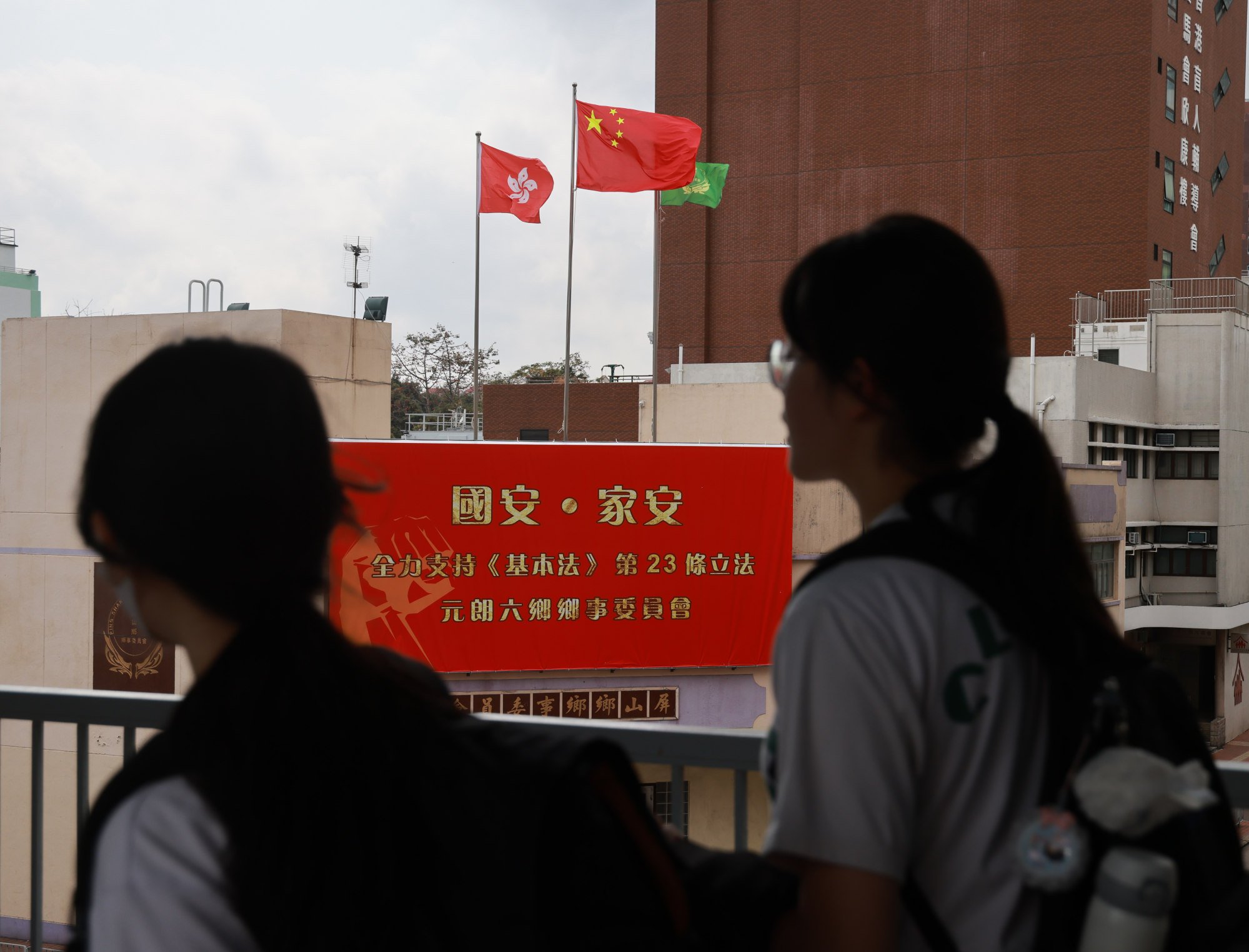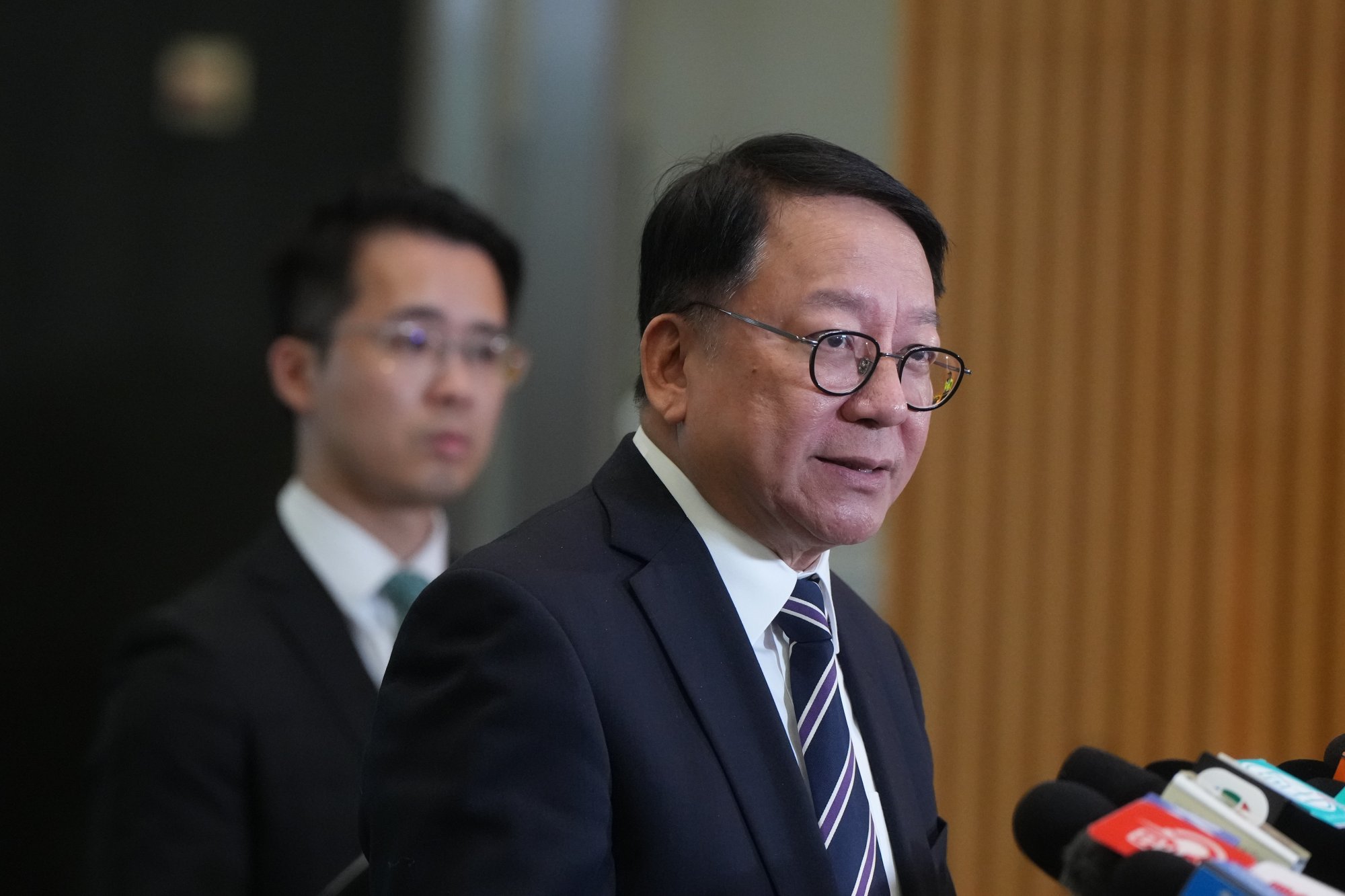
Explainer | How should businesses navigate Hong Kong’s Article 23 law? The Post seeks out corporate lawyers for answers
- Safeguarding National Security Ordinance has prompted concerns from some foreign investors over its possible implications, even as officials stress its stabilising impact
- Some corporate lawyers say foreign firms have already taken measures in response to earlier Beijing-imposed law, with others suggesting companies may look elsewhere
While Beijing and local authorities have repeatedly emphasised the sweeping Safeguarding National Security Ordinance will help ensure Hong Kong’s stability and prosperity, some foreign investors earlier raised concerns over the legislation and its implications, which remain unclear at present.
The Post talks to several international corporate lawyers about how businesses can cope with the new law.
1. Should businesses adjust the way they operate?
It depends on whom you ask. Hong Kong officials have reassured chambers of commerce that businesses will not need to conduct extra compliance checks, as it will be difficult for them to accidentally run afoul of national security offences.
Ministers have sought to allay concerns by saying the chance of businesses inadvertently leaking state secrets, which come with specific stringent criteria, is very low, adding the law will not affect normal interactions between residents and businesses with foreign organisations.
The government also renamed the offence of “external interference” via an amendment by adding “endangering national security” after it to highlight any crime linked to improper means would be separated from “normal international exchanges”, in commerce, academia and culture.
But James Ellender, the Asia-Pacific managing director of risk consultancy firm Futurum Asia, said his firm had seen a rise in inquiries with the new law, while some of the company’s biggest clients had already asked for employee screening and due diligence checks on suppliers since the third quarter of 2023.
His observation was shared by other lawyers the Post talked to, with one suggesting the new reviews “would not make Hong Kong better”.
In fact, international corporate lawyers also appeared to prefer staying away from commenting on the new law. Of the 17 legal professionals approached by the Post, only three replied.

2. How should businesses handle confidential data?
The Beijing-decreed legislation, which came hot on the heels of the anti-government protests a year before, outlaws acts of secession, subversion, terrorism and collusion with foreign forces.
Unlike previous practice, local staff of some companies had either been banned from accessing sensitive or confidential data, or could only have limited access after applying for it, according to the lawyer’s understanding.
He expected foreign companies in Hong Kong would only fine-tune their internal measures with the new law given the major changes had already been made a few years ago.
Accountancy or investigation firms which researched China’s economy or looked into white-collar crimes might also face higher risks in light of the new theft of state secrets offence, he added.
US to put new visa limits on Hong Kong officials in wake of Article 23
3. What about meetings with external parties and government officials?
The corporate lawyer said international companies could consider minimising their local staff’s involvement in exchanges with foreign parties or officials.
“They can let their overseas staff handle that. In fact, some companies have already been practising this,” he said.
United States-based lawyer Dan Harris, a founding partner of Seattle international law firm Harris Sliwoski and co-author of the China Law Blog, said the Article 23 legislation had made it “increasingly risky” for businesses to have meetings with other parties, or even to deal with government officials.
He advised businesses to tread carefully and avoid any activities that could be seen as a threat to national security, while putting in place procedures for communicating with government officials.

4. What companies might face higher risks?
Lawyers have said infrastructure or telecommunications companies, which are involved in more sensitive dealings and have a security aspect, may face more risks, while others which are merely involved in manufacturing, such as textile or clothing, will face fewer.
5. Will the new law affect the business environment?
Both the local and central governments have argued that the new law, instead of driving away businesses as some foreign media and politicians have warned, will only do the opposite.
Chief Secretary Eric Chan Kwok-ki, Hong Kong’s No 2 official, for instance, said last month that the business sector valued a relatively safe and stable social environment.
He added that the 2019 social unrest was a clear example of activity that destabilised the city and caused uncertainty.
“I do not think petrol bombs [being hurled], protests and storms happening every day are a good environment for doing business,” he said.
Washington-funded Radio Free Asia quits Hong Kong, citing staff safety concerns
But US-based Harris said some companies could rethink whether they should stay in Hong Kong when there were many other places that would be “far less risky”.
Weiheng Chen, senior partner and head of Greater China Practice at US-based law firm Wilson Sonsini, said given the new law had been enacted, the focus should shift to how it would be enforced.
“The real business impact will be seen through the implementation process. There are practical areas such as data security and dealing with foreign-government affiliated parties that the business community is eager to get clarifications on,” he said.
“Any implementation guidance from the Hong Kong government should be welcomed before the availability of case law interpretations.”

